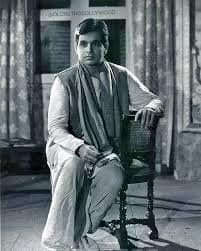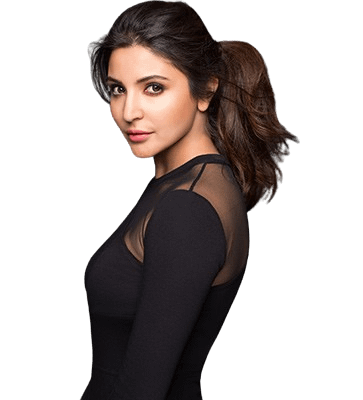Introduction to “Qila”
“Qila” (translated as The Fort) is a 1998 Hindi courtroom drama-thriller directed by Umesh Mehra. While the film received a lukewarm response at the box office, it remains notable in the history of Indian cinema for a single monumental reason: It marked the final film appearance of the legendary actor Dilip Kumar, often referred to as the “Tragedy King” of Indian cinema. The film attempted to offer a gripping narrative woven around justice, familial betrayal, and the moral dichotomies of human nature. However, it is the film’s casting, especially that of Dilip Kumar, that forms the most significant aspect of its legacy.
Dilip Kumar – The Crown Jewel of the Cast
A Dual Role for a Veteran Legend
At the center of “Qila” stands Dilip Kumar, essaying a double role — one as the corrupt, ruthless landowner Jagannath Singh, and the other as his twin brother Judge Amarnath Singh, a man of upright morals. The casting of Dilip Kumar in this dual role was a masterstroke in an otherwise modest film, giving the thespian one last chance to showcase his immense range and screen presence.
The decision to cast Dilip Kumar in this complex double role wasn’t just a creative move; it was an homage to his illustrious career spanning over five decades. The contrast between the roles — one grey and tyrannical, the other upright and justice-seeking — allowed the actor to display his versatility even at the age of 75.
Casting Considerations
Director Umesh Mehra reportedly approached Dilip Kumar with the script after carefully tailoring it to suit the stature of the veteran actor. Initially hesitant, Dilip Kumar agreed to the project, moved by the layered character development and the opportunity to play both hero and anti-hero. He reportedly collaborated closely with the director to refine the screenplay, especially the dialogues and the legal sequences, ensuring they resonated with moral weight and dramatic tension.
Moushumi Chatterjee – The Female Lead
Veteran actress Moushumi Chatterjee was cast opposite Dilip Kumar, adding old-school gravitas to the supporting cast. Known for her strong performances in films like Roti Kapda Aur Makaan and Anuraag, Chatterjee brought depth and dignity to her role. Her presence served as a balance to the testosterone-heavy courtroom scenes and added an emotional layer to the family drama.
She played the role of Jagannath Singh’s estranged relative, who becomes a crucial link in unraveling the mystery behind his murder. Her scenes with Dilip Kumar are marked by mature performances, subtle emotional cues, and the kind of restrained acting that defines performers of their generation.
Mukul Dev – The Young Blood
To infuse youthful energy and to appeal to a younger demographic, the film cast Mukul Dev in a pivotal role. He portrayed the role of Amar, a hot-headed and determined young man whose connection to the central murder mystery adds layers to the narrative. Mukul Dev, who was relatively new in the industry at the time, held his own against stalwarts like Dilip Kumar. The producers reportedly saw in him a combination of sincerity and passion — elements essential for the role of a justice-seeking youth battling against systemic corruption.
His performance was lauded for its intensity, especially in scenes where he confronts the hypocrisy and double standards of those around him. In many ways, Amar becomes the voice of the common man, disillusioned by power but unwilling to surrender to it.
Rekha – The Surprise Package
Rekha, one of Indian cinema’s most enigmatic actresses, made a special appearance in “Qila”, playing a public prosecutor in the courtroom drama. Though her role was limited in screen time, her gravitas and controlled delivery brought a much-needed flair to the otherwise straightforward legal proceedings in the film.
Rekha’s presence was a significant addition. The producers hoped that her inclusion would elevate the film’s appeal among the audience, especially considering her iconic status in the 90s. Her scenes with Dilip Kumar were subtle reminders of an era gone by — of two powerful performers sharing screen space, not in a romantic track, but as opposing forces within a court of law.
Smita Jaykar – A Steady Supporting Actress
Smita Jaykar, known for playing maternal and morally grounded characters in Indian cinema, played an important role as a family member caught in the whirlwind of the Singh family’s crumbling moral edifice. Her character represented the conscience of the household, someone who had suffered in silence for years but ultimately contributed to the unravelling of hidden truths.
Her casting was a strategic move. Smita Jaykar’s expressive face and sincere performances had won her appreciation in films like Vaastav and Hum Dil De Chuke Sanam, and she brought similar conviction to “Qila”.
Prem Chopra – The Quintessential Antagonist
No Hindi film of the 90s would be complete without a villainous presence, and who better than Prem Chopra? Known for his iconic negative roles, Prem Chopra played a shady politician/businessman entangled in the moral decay surrounding Jagannath Singh. His interactions with both of Dilip Kumar’s characters were filled with dramatic tension and the typical villain-hero confrontations that Indian audiences love.
Casting Prem Chopra was not just a default choice; it was deliberate. His character was symbolic of the systemic rot — where power, wealth, and politics intersect with injustice. His scenes in the courtroom and during conspiratorial exchanges added a thrilling, if sometimes over-the-top, angle to the narrative.
Gulshan Grover – Supporting Antagonist
Another name synonymous with villainy in Bollywood, Gulshan Grover, played a key henchman or corrupt police official. Often referred to as the “Bad Man” of Bollywood, Grover’s calculated menace added to the criminal underbelly aspect of the story. His character served as a bridge between the high-profile criminal minds and the street-level execution of their plans.
Gulshan Grover’s casting was essential in making the audience feel the palpable threat surrounding the murder of Jagannath Singh. With his unmistakable style, he ensured the antagonist’s world didn’t feel cartoonish but carried real-life echoes of power and oppression.
Behind the Casting: Production Notes
“Qila” was a project born out of nostalgia and tribute. Umesh Mehra, son of producer F.C. Mehra, had a strong legacy to uphold. The decision to make “Qila” a courtroom thriller that rests heavily on Dilip Kumar’s performance was risky, given the changing tastes of Indian audiences in the late 90s, who were now more attuned to romantic dramas, action-comedies, and modern-day thrillers.
Nevertheless, the casting was done meticulously. Here are some insights:
- Dilip Kumar’s commitment to the role, despite his declining health, was a testament to his professionalism. Every scene was shot with care, often in fewer takes due to his stamina, but the depth of performance remained unmatched.
- The casting of veteran actors like Moushumi Chatterjee and Prem Chopra was meant to attract an older demographic, while the inclusion of Mukul Dev and Rekha helped balance the age dynamics.
- The courtroom backdrop needed strong orators — actors who could deliver long monologues and arguments with weight. Rekha, Dilip Kumar, and Smita Jaykar excelled in this space.
- Costume and makeup were tailored to reflect the gravitas of the older generation while giving a contemporary look to the younger characters.
Casting Legacy and Public Reception
While Qila may not have broken box office records, its casting choices were universally acknowledged. Critics noted that the film felt like a stage play, anchored by powerful performances rather than flashy gimmicks. The film is now seen as a farewell salute to Dilip Kumar, whose double role stands as a reminder of his unmatched contribution to Indian cinema.
The film was also one of the few in the 90s that still relied on character actors, rather than banking purely on stars. It represented a crossover of two generations — the old and the emerging — through its casting. This rare intergenerational collaboration gave Qila a unique identity.
Conclusion
The casting of Qila wasn’t merely about fitting actors into roles — it was about curating a tribute to a fading era of Indian cinema. From the towering presence of Dilip Kumar in a dual role to the supporting pillars like Rekha, Moushumi Chatterjee, Prem Chopra, and Mukul Dev, every choice reflected an attempt to blend legacy with relevance.
Though the film didn’t reach commercial success, Qila will always be remembered as the final curtain call of one of India’s greatest actors. Its casting narrative deserves as much spotlight as the film itself — not just for who was chosen, but for what each actor brought to the cinematic farewell of a true legend.



One thought on “Dilip Kumar Casting of the Qila Film (1998)”